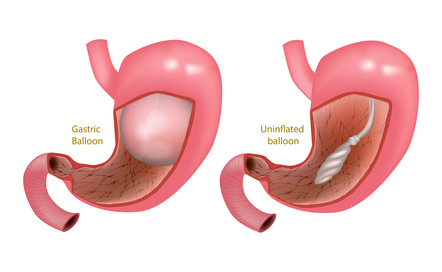Introduction
When it comes to weight loss, many people immediately think of surgical options such as gastric bypass or sleeve gastrectomy. While these surgeries can be effective for some individuals, they are not the only path to long-term weight loss. Non-surgical approaches should not be overlooked, as they can offer significant benefits and help individuals achieve their non surgical weight loss goals without undergoing invasive procedures. In this article, we will explore the power of non-surgical approaches for achieving lasting weight loss.
The Importance of Non-Surgical Approaches for Weight Loss
1. Lifestyle Modifications
One of the key components of non-surgical weight loss approaches is lifestyle modifications. This involves making sustainable changes to your daily habits and routines that promote a healthy lifestyle. By focusing on factors such as nutrition, physical activity, and stress management, you can create a foundation for long-term weight loss success. Lifestyle modifications are accessible to everyone and can be customized to fit individual needs and preferences.
1.1 Nutrition
A crucial aspect of non-surgical weight loss is adopting a nutritious diet. This includes consuming a balanced mix of macronutrients (carbohydrates, proteins, and fats) and micronutrients (vitamins and minerals) that support overall health and weight management. A registered dietitian can provide personalized guidance and create a meal plan that suits your dietary requirements and weight loss goals.
1.2 Physical Activity
Regular physical activity is essential for weight loss and overall well-being. Engaging in activities that you enjoy, such as walking, swimming, or cycling, can help you burn calories, increase your metabolism, and build lean muscle mass. Aim for at least 150 minutes of moderate-intensity aerobic exercise per week, along with strength training exercises to enhance muscle tone.
2. Medical Weight Loss Programs
For individuals who need additional support and guidance, medical weight loss programs can be a valuable non-surgical option. These programs are overseen by healthcare professionals and offer comprehensive approaches to weight loss. Medical weight loss programs typically include a combination of nutritional counseling, behavior modification, and sometimes medication to support the weight loss journey.
2.1 Nutritional Counseling
Medical weight loss programs often include regular sessions with registered dietitians who provide personalized nutritional counseling. They can help you understand portion control, develop healthy eating habits, and create a meal plan that aligns with your specific needs and preferences. Nutritional counseling can also address emotional eating and provide strategies to overcome challenges.
2.2 Behavior Modification
Changing deeply ingrained behaviors is crucial for sustainable weight loss. Medical weight loss programs often incorporate behavioral therapy techniques to help individuals identify and modify unhealthy habits. This may involve addressing emotional triggers, developing coping mechanisms, and creating a supportive environment that promotes positive lifestyle changes.
The Benefits of Non-Surgical Approaches for Weight Loss
1. Minimally Invasive
Unlike surgical weight loss procedures, non-surgical approaches are minimally invasive. This means there is no need for major incisions or extensive recovery periods. Non-surgical methods typically involve outpatient visits or consultations, allowing individuals to resume their daily activities promptly. This makes non-surgical approaches more accessible to a wider range of individuals who may not be suitable candidates for surgery.
2. Reduced Risks and Complications
Surgical procedures come with inherent risks and potential complications. Non-surgical approaches, on the other hand, carry fewer risks and are generally considered safer. By focusing on lifestyle modifications and medical supervision, individuals can achieve weight loss without exposing themselves to the potential risks associated with surgery. This is particularly beneficial for individuals with certain medical conditions that may make them ineligible for surgery.
Conclusion
Achieving lasting weight loss without surgery is possible through the power of non-surgical approaches. By embracing lifestyle modifications, participating in medical weight loss programs, and utilizing the expertise of healthcare professionals, individuals can embark on a journey towards sustainable weight loss. These non-surgical options provide accessible and effective strategies that cater to individual needs and preferences. Remember, weight loss is a personal journey, and finding the right approach that works for you is key. Consult with healthcare professionals and take the first step towards achieving your weight loss goals today.

